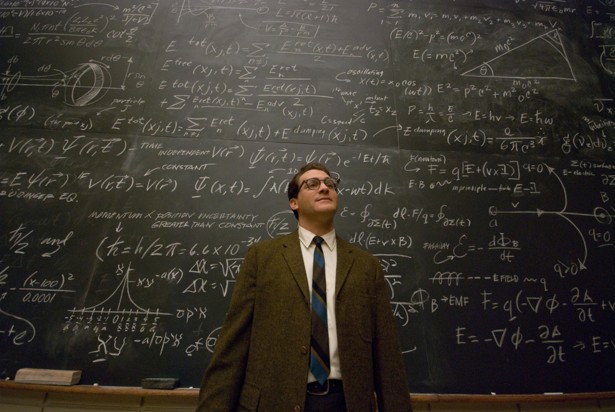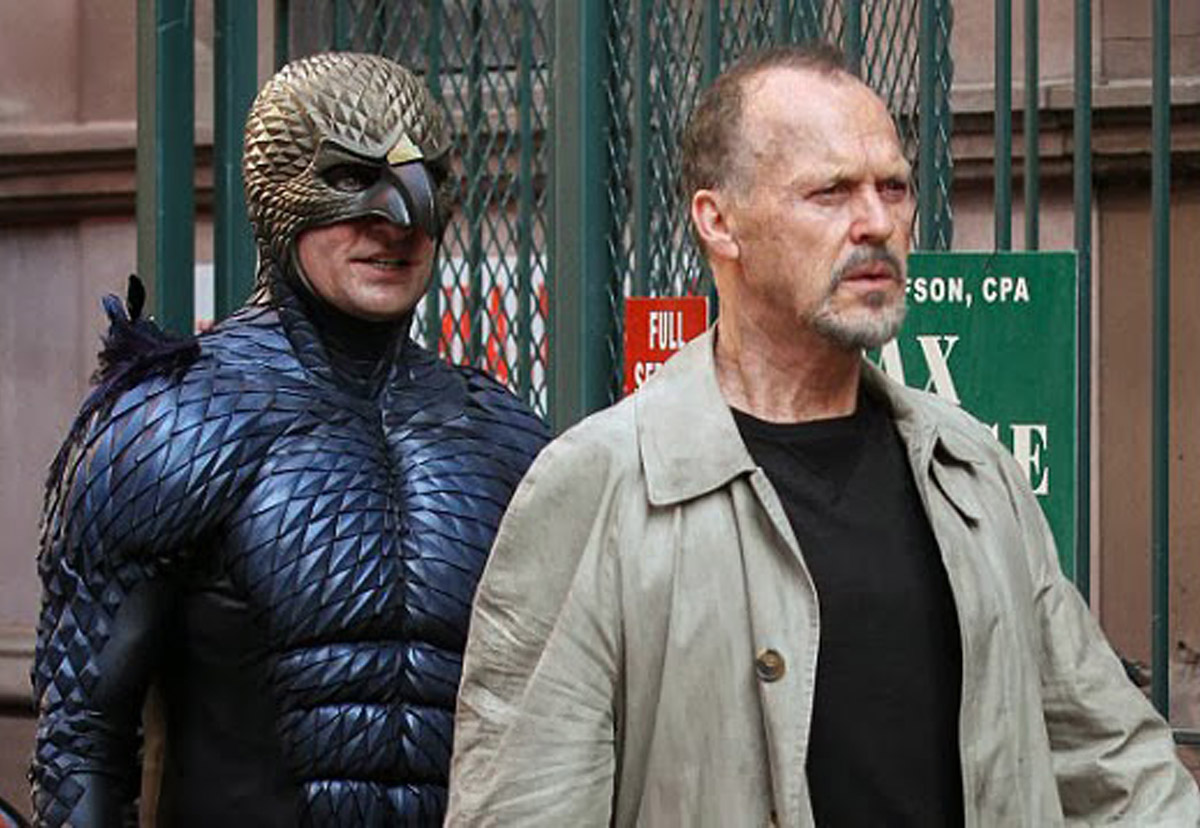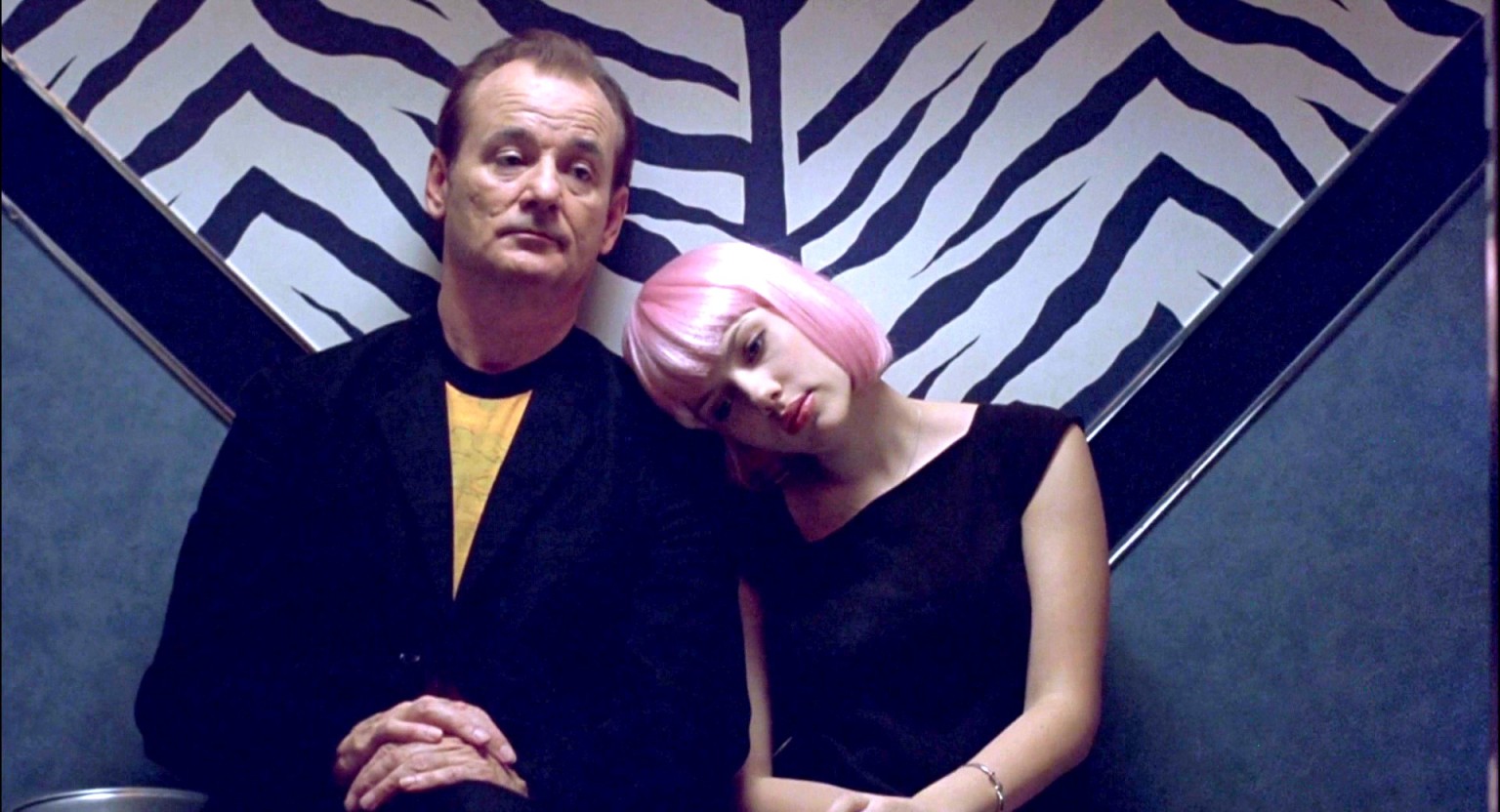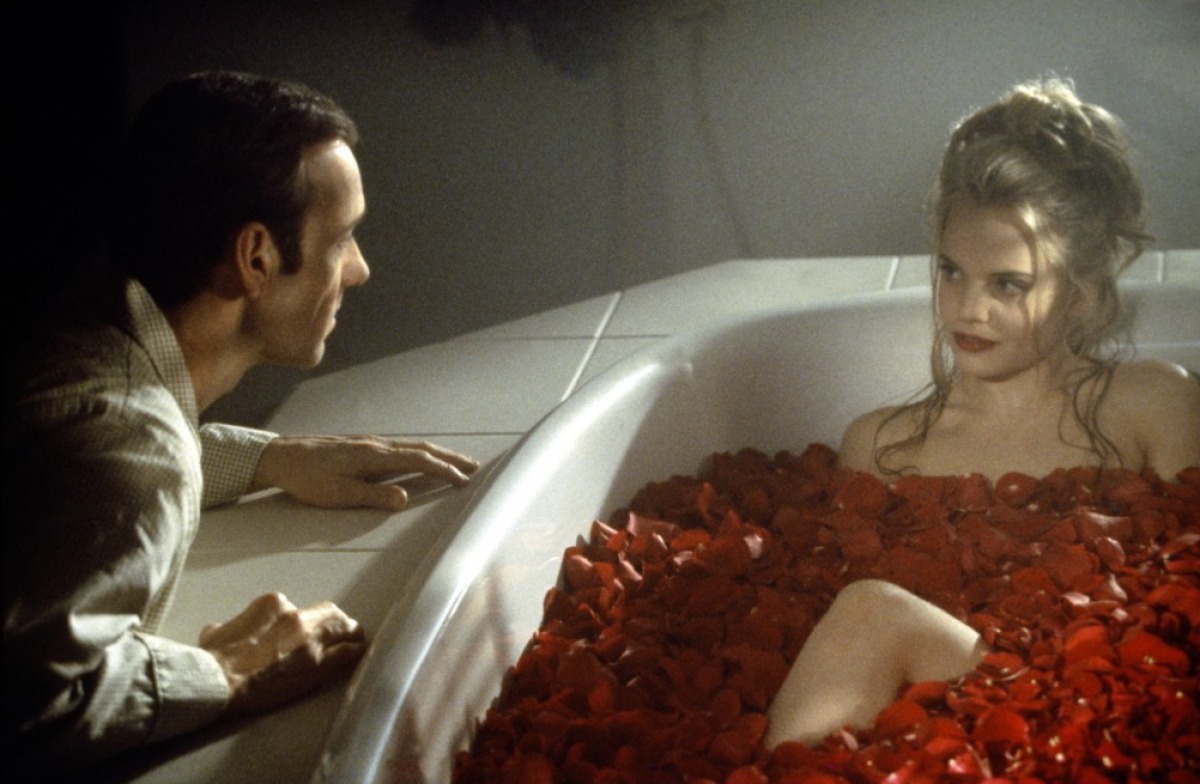5. A Serious Man by the Coen Brothers

A Coen Brothers film hardly lives up to their auteur if not steeped in ambiguity. This, in essence, is the entire maddening concept of their 2009 films tarring Michael Stuhlbarg.
The entire narrative is an extremely low-key account of Stuhlbarg’s character, Larry Gopnik, suffering a horribly unfortunate series of events that seem to arise due to no fault of his own. The man grapples with his utter inability to control his family and career and the inevitable question of worth soon sets in and begins to plague him.
As an effort to find an answer to his problems, Larry seeks the advice of three rabbis to help him find some meaning for his struggles.
This, of course, leads him nowhere and points to the overarching theme of his story- lack of reason and lack of control. The film largely interests itself in a nihilistic sort of theory that everything in the universe is beyond our control and the events that effect us are arbitrary.
Larry continuously works to control his circumstances, even using his career as a mathematics lecturer to prize out a theorem that explains the rules of unpredictability, but invariably falls flat.
Even as he consistently complains that he “hasn’t done anything” to warrant this period of personal crisis, that lack of action is irrelevant to what befalls him. Meaning, according to the film, exists only where we create it.
4. Birdman by Alejandro González

Released in 2014, Alejandro Iñárritu’s Birdman was a critical hit that received Best Picture at the 2014 Academy Awards along with three other wins and nine nominations.
The lead character is a washed up superhero actor who suffers from audio and visual hallucinations that point to the vast fear of inadequacy that he holds.
Riggan Thomson, the former star in dated Birdman films, is shown attempted to scrape together life into his career once more by starring in a role he’s adapted for the stage.
The film follows the rehearsal and previews of the play which are inevitably shaken by Riggan’s imbalance and the waves made by new talent Mike.
Events that conspire in the film grow increasingly detached from reality and Riggan presents its story as a truly unreliable narrator. His heroic effort to recapture something that long ago faded echoes the fear many share which his daughter, played by Emma Stone, shout at Riggan during an altercation. “You don’t matter” is the thought that plagues the aging actor, wreaking havoc upon his mind, until the very last scene.
3. Lost in Translation by Sofia Coppola

Coppola’s enigmatic Best Picture nominee is a candy colored study about lack of direction in both young and old. What is widely acknowledged as Scarlett Johansson’s break-out roll also served as a platform for Bill Murray to re-invent his career as the droll, unfulfilled Bob Harris.
Harris’s once prosperous acting career is now a tired landscape of TV appearances and advertisements, which finds him in Tokyo promoting a whisky for money under the direction of near-incomprehensible youths. He meets Charlotte, the despondent 20-something played by Johansson, at the Park Hyatt Tokyo Hotel.
What makes the film so memorable is the mingling of Murray’s dissatisfaction with Johansson’s lack of direction as a 20-something, and the solace they find in friendship generates the film’s poignant mixture of comedy and introspection.
The two essentially explore Tokyo together while Charlotte’s husband is away working and Bob wiles time away whilst dreading his next booking.
Cleverly, the title encapsulates both the heart of the film and its locational relevance; there is a loss in translation between both characters and their spouses, who don’t seem to really know them, and the challenge of navigating a foreign country without knowing the words.
Appropriately, Bill Murray’s famous improvised murmur in the ear of Johansson during the film’s final scene illustrates its poignant ambiguity regarding the delicacy of relationships and the destruction of identity.
2. American Beauty by Sam Mendes

American Beauty, one of Sam Mendes many films on similar themes, is interested in the secrets that lie within unassuming walls. Winning five Academy Awards, it is certainly one of the director’s finest triumphs.
It follows the deadly series of events that leads to its main character Lester’s, played by Kevin Spacey, untimely murder. In a typical American suburb full of perfectly tailored routine and façade, the film delves beneath the surface of two dysfunctional families after the homophobic Colonel Frank Fitts moves nearby with his son and unresponsive wife.
Lester is suffering from a severe lack of fulfillment due to his loathed job and unhappy marriage. It is revealed the both partners in marriage are similarly unhappy and their daughter is completely resentful of them both, completing the broken image beneath the well manicured image shown to the public.
The film shows a tensely directed spiral born from both dissatisfaction and mistrust among characters that leads directly to Lester’s demise.
1. 8 ½ by Federico Fellini

This classic is heroically famous for many reasons and is often included high in the ranks of the best films ever made. The film achieved the Academy Award for best foreign features in 1963 and was heavily influential for much of the avant garde movement.
It chronicles the creative block of a legendary fictional director, Guido Anselmi, as he tries to find inspiration for his next feature film but its meaning constantly evades him. 8 1/2 watches as Guido makes futile attempts to understand the direction he is supposed to take while frequently dipping into psychoanalytical visions, as if peeking inside his frustrated subconscious.
We follow and ambling path that introduces people who are central to the director’s life but whom he systematically ignores, such as his lover Carla and his wife Luisa.
Instead the man torturously appeals again and again to different people to find feedback about his cinematic ideas, including a major film critic and a Catholic cardinal, which ultimately provides no benefit.
In the end, Guido must understand himself to create the product that he’s searching desperately for, and that in and of itself is the primary conflict of the film. He does not actually comprehend what truths about himself he knows that would create what he aspires for an “honest film.”
Only after he accepts the help of those important to him and discards his multiple pretenses can Guido find direction out of this languid mid-life funk.
Author Bio: Erin Powers is a third year film studies student at the University of St Andrews in Scotland. She particularly enjoys film theory and philosophy and enjoys character centric films from directors like the Coen Brothers and Sofia Coppola.